Valencia’s hidden war is one of Nazaret residents fighting against expansion of the port. Julio Voltó and Maite Biosca Gonzalez have been fighting “The Good Fight” since the early ’70s, defending their neighbourhood from unruly developments, and fighting for the green areas of the river. Join tomorrow’s protest to show your opposition. ’Valencia Life’ sat down with them to hear their story. Eugene Costello and Daniel Hazelhoff report. Photographs by Paul Knowles…
The house stands in a small row of similar properties with large gardens behind white adobe walls. Opposite the properties, on the other side of the street, are what appear to be derelict plots of land. Overgrown shrubbery peeks out through the paved abandon of this place. One gets the sense that this part of Valencia has been long since forgotten by the Ayuntamiento. A modern-day Land That Time Forgot. Were Blasco Ibañez to come back, he would barely bat an eyelid, one suspects.
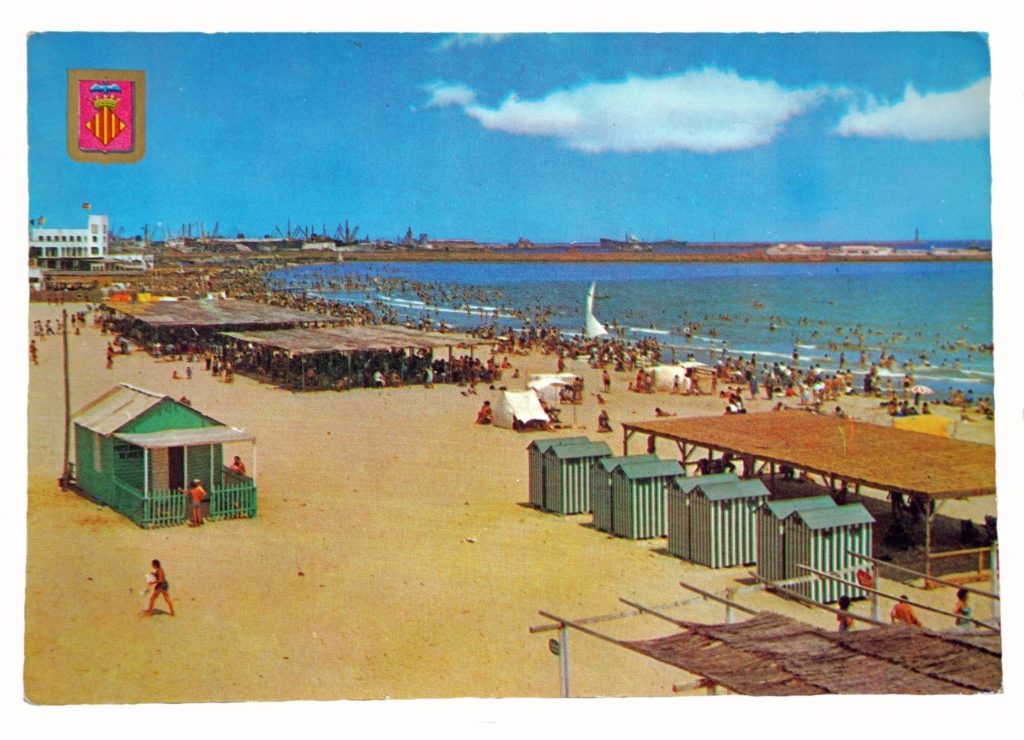
We meet Chris, an American now living in Nazaret, and a friend and neighbour of Maite Biosca Gonzalez and Julio Voltó. The atmosphere, with whitewashed walls and trailing shrubbery and bougainvillaea is more consistent with beachfront properties…
Life’s A Beach
… Except there is no beachfront. That went decades ago. Now, all that faces them are the cement slabs of land, here since the late 1980s when the port expanded into Nazaret.
Chris brings us next door to join Maite and Julio at a wooden verandah table where they are taking morning tea, much in the English manner. Their faces have smile creases and their eyes sparkle with amusement and friendliness. For these two old campaigners and protesters, their faces speak of a life lived well, despite their battles with the state and authorities.
We sit down and accept a cup of tea. Julio gets straight to the point. He shows us a picture dating back to 1981 when their house still overlooked the beach. He shows us that the sandy strand full of families in swimwear enjoying a day out. There is a chinguito, a beach bar and it could be a beach anywhere on Spain’s coast. Now all gone, with a building site having taken its place.
The once-famous Benimar club is now shut up and fenced off. But it has a significant history and has a history as a social and cultural centre, a spa and latterly a nightclub and restaurant. It is now part of an area fenced off to be developed into training grounds for Levante Unión Deportiva, Valencia’s second football club. But that is not what our hosts are up in arms about. They have bigger fish to fry.
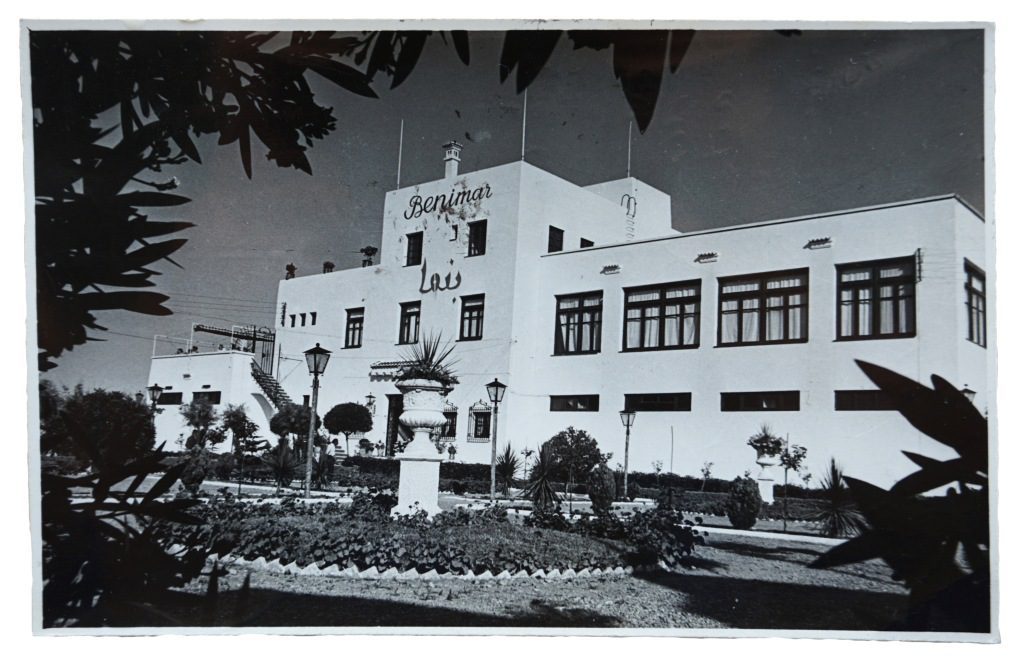
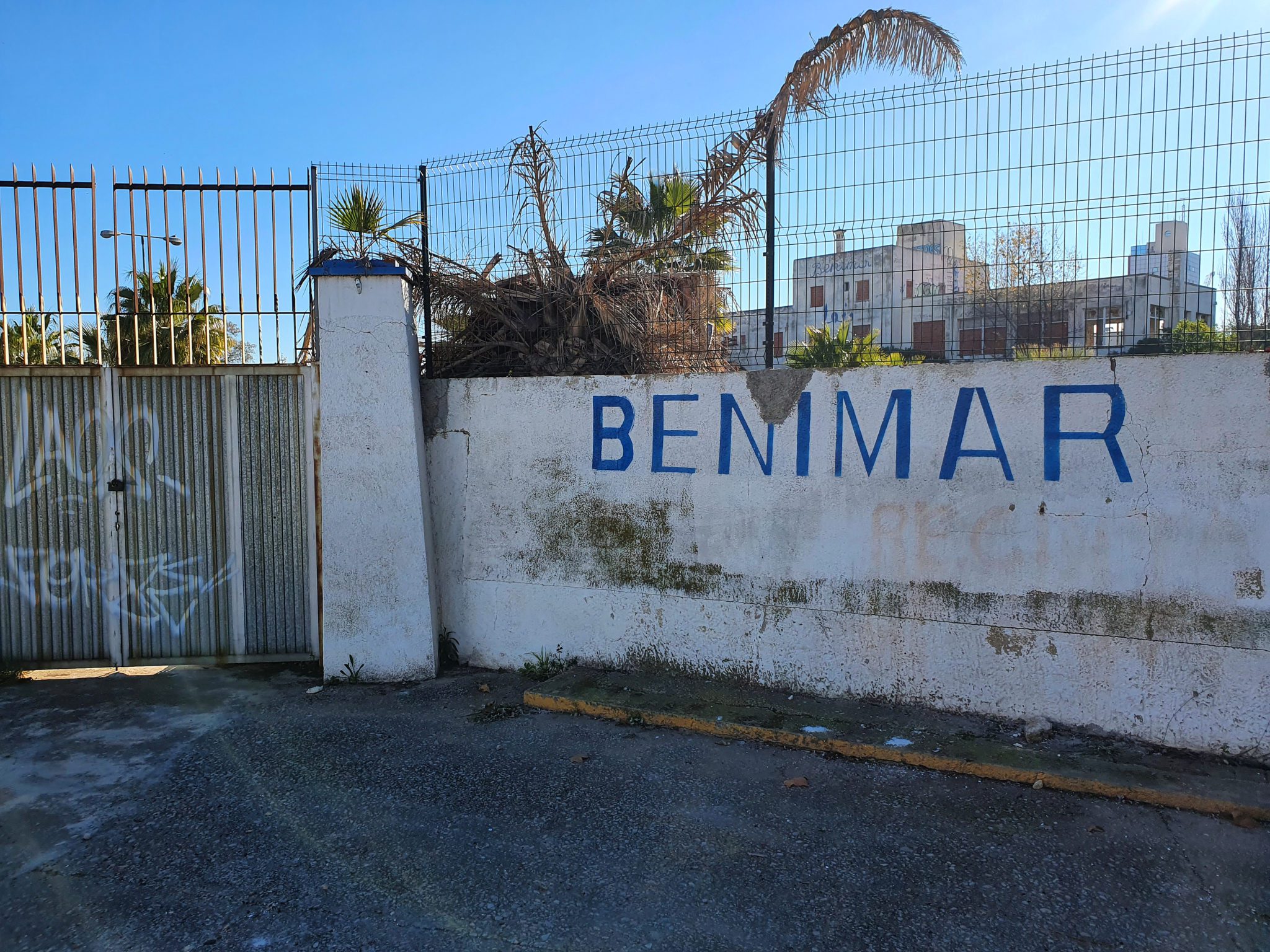
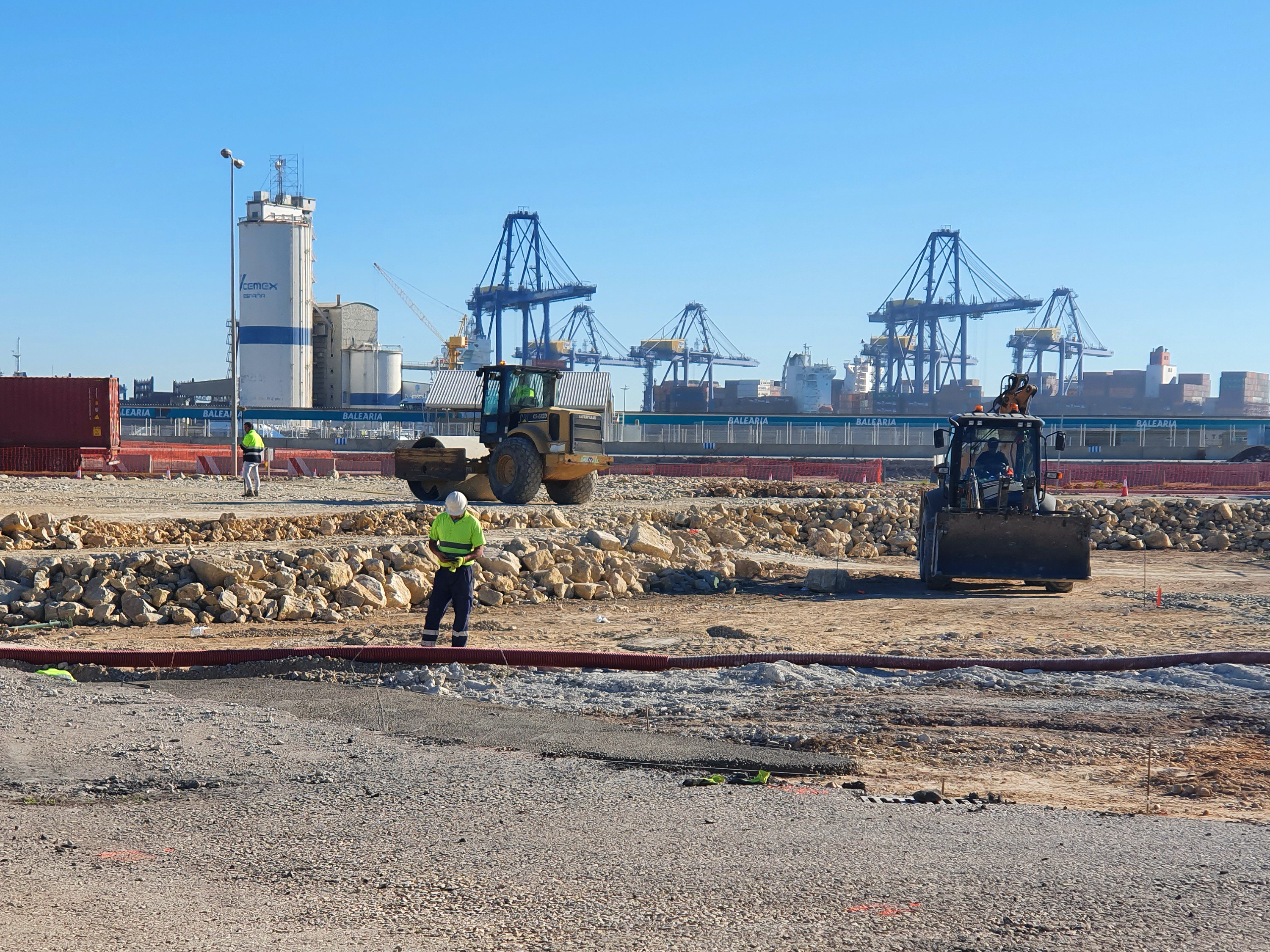
© PAUL KNOWLES / VALENCIA LIFE
Maite and Julio’s house stands on what would have been the first line of houses on the coast opposite the beach. They take up the history.
Battle Veterans Still Up For The War
“There was an important war we were fighting back in the last days of Franco,” says Julio. “We wanted to conquer the river and take it back for public use, since it belonged to the people in the first place,” he points out.
The government wanted to run a motorway through the river to ease access for lorries to the port, he says. The people protested and fought for what we have now, Los Jardines del Turia, Spain’s biggest urban park. Without the efforts of long-term campaigners and protesters such as these veterans, Valencia would not be what it is today.
“In 1981 we went into the river bed, to plant trees. We brought picket signs, and a banner that said ’we want the park to reach Nazaret’.
“That never happened so we’re still fighting for that today,” he says with a rueful laugh.
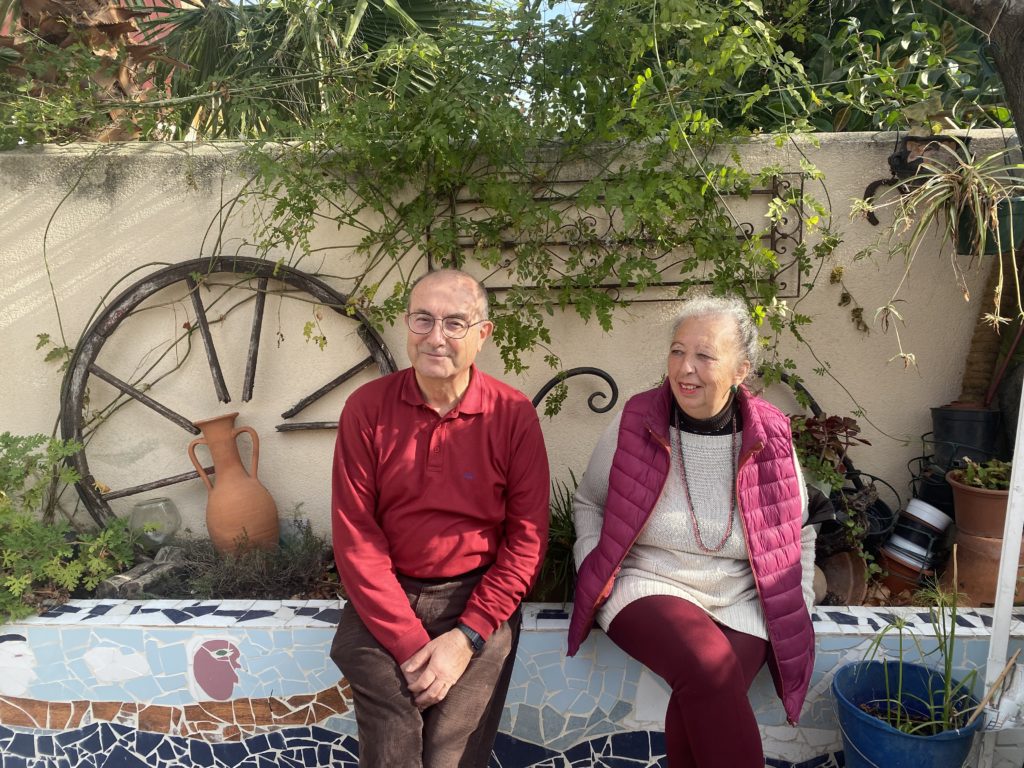
Are more green spaces enough?
“We did, however, succeed in closing down the factory that was next to our home. This factory was responsible for a lot of pollution and was shoddily built,” Maite cuts in with evident pride.
The tone changes as a binder come out, and they unfold maps onto the table. It feels like we are now in the campaign room of an urban militia.
“This is what we’re fighting for at the moment”.
He explains and shows what the port owns. He points out a stretch of urban land, mainly abandoned parks and the stagnant end of the river.
“They’re planning on building the new training grounds for Levante opposite,” says Julio.
“That’s all well and good – more green spaces and a place for people to practise their passion,” says Maite.
“However, the land that will be developed is owned by the port. What we’re afraid of is the re-routed traffic,” she adds.
Drawing Up Battle Plans
Julio shows us different access points and points out alternatives to where traffic could go without sending lorries and coaches thundering through the heart of the village, destroying its peaceful, sleepy feel.
Yet despite the village feel of the neighbourhood, “This is technically an urban area, and we do not have the infrastructure to handle all of this traffic,” says Julio.
“If the port and the Ayuntamiento choose to route traffic through here, it will be a fiasco,” he says, suddenly not smiling, a frown creasing his forehead.
“All we ask is that the access points go through the port, and not residential areas”, he continues.
The abandoned plots of land dotted around their home are owned by the port.
“If we have to choose between a new football pitch and an abandoned plot of land, we choose football, of course,” says Maite.
“The development of the Levante training area is really an opportunity for Nazaret,” she says.
“First and foremost, it would provide a green area, that’s always good.
“Second, it will attract new neighbours, and attention to Nazaret, potentially breathing life back into the neighbourhood. And it also prevents further port expansion into Nazaret,” she says, folding her arms across her chest in a determined manner.
We’ve fought, and resisted
“The only reason that we’re living here is that we’ve fought, and resisted, the amplification of the port,” she continues.
“If they would have gotten their way, there would be no houses here, this would all be a port,” she says defiantly.
“Our current mayor is the only mayor that’s tried to help,” Maite says.
“although he’s not doing much, and what he does he does quietly.”
There’s a moment of silence while they sigh, but it’s just an instant. Immediately after, they’re back into planning and campaigning mode, and out come the maps again.
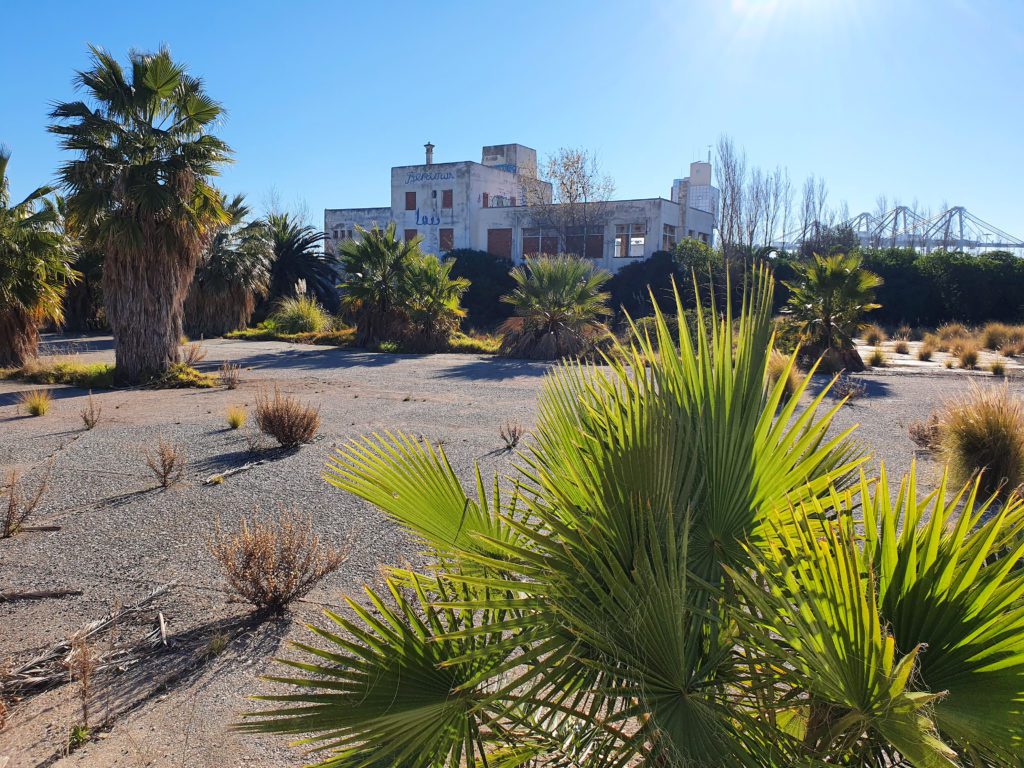
The Hidden War Takes Shape
“The Ayuntamiento says it is planning an international competition to find the best plan for the Valencia port expansion and the design of the river,” says Julio.
So there’s hope for this small, forgotten community. Their fight stands strong and is achieving results.
The end of the river, however, is profoundly contaminated. This is due to the factories that once populated the area, and polluted the waters with their disregard and discarded waste. Local residents are now fighting to have it cleaned up, they tell us.
“When the democratic government was implemented, things started to get a little bit better, but it’s still not great,” says Maite. “We need to clean up the eastern end of the river, and expand the green areas down to here.”
“Valencia, the capital of El Turia,” says Julio wistfully. “Such a proud name, a proud river, and look how it is now defiled by our own government,” with an uncharacteristic flash of anger.
He explains the division in Valencia between the main city, and smaller outlying towns such as El Cabanyal, and Nazaret. The division here isn’t just political, but physical, he points out. In order to get into Nazaret you need to cross over bridges, and railroad tracks. This division served as an apt metaphor for their current situation.
Pointing at the map, specifically the new channel, Julio explains further issues with the infrastructure surrounding Nazaret, and the consequences that only residents experience.
The Hidden War Both To The North And South
“The new channel reroutes water when it rains. The issue is, when it rains in the city, the water doesn’t reroute through the new channel, it runs down what used to be La Huerta, which is now asphalt.
“The land that usedto soak up the water and prevent flooding in Nazaret is gone. So when we have heavy rains, it floods.
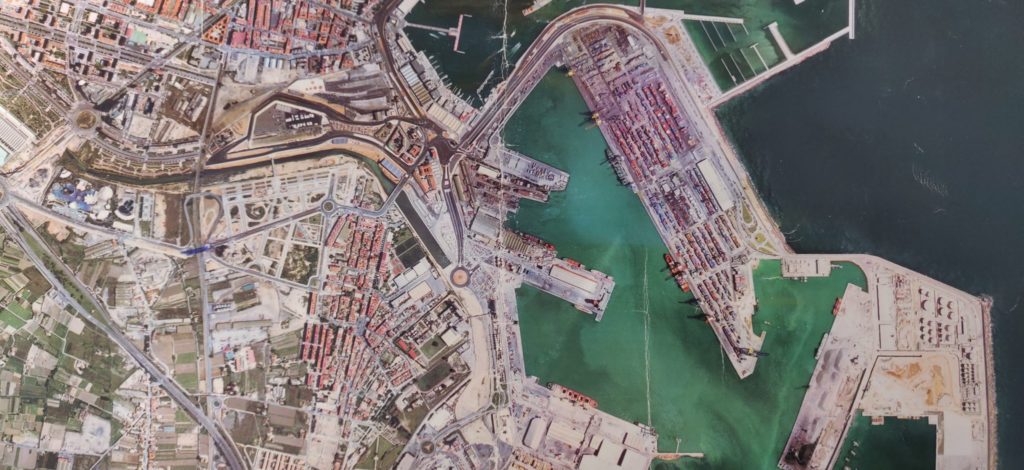
“The port – Valenciaport – knew this, so they built their infrastructure higher up, above the flooding levels.
“There has been no improvement in the drainage systems, so residents of the area either build their houses up and reinforce them or suffer flooding.”
When the Valencia port expansions happened back in the 1980s, says Julio, “someone had to be sacrificed”.
“We weren’t happy about it, but the south was sacrificed. We lost our beach, and the port was built.
“This was all done to save the beaches to the north, Las Arenas, Malvarrosa, Patacona and so on.
“Now, they want to expand the port again, and damn the beaches,” explains Julio.
The northern amplification might get the go ahead as early as the end of this week, Friday 11 February. But this expansion will have environmental consequences, says Maite.
“They always fool the people with promises of job creation,” says Maite.
“But it is an estafa and an illusion. There are fewer people working in the port now than there were before,” she says, rolling her eyes at what she sees as mendacious effrontery.
The environmental cause is pressing, they tell us. For all that the Ayunatmiento and tourism bodies like to promote El Saler and Albufera, the knock-on effect could be hugely destructive.
Valencia Port Expansion An Environmental Disaster?
“The amplification of the port will cause problems for the beach at El Saler,” they explain.
“If the development gets the go ahead, they will expand the port by 2.5 times its size,” says Julio.
“This implies a completely unsustainable development plan. It will occupy nature we can’t get back, It would affect beaches both in the north and the south. It endangers the ecosystem of La Albufera, by increasing salinity levels. And it cuts the currents that run from north to south, which in turn affects beaches all the way to Cullera, and could eradicate the dunes,” says Julio.
“We don’t really have any support from any government institution, I guess Compromis, but you have to press them a lot, ” says Julio.
“The socialist party of Ximo Puig wants to continue the northern development, they say it will generate wealth,” he continues.
“The port’s board of directors is an opaque organisation, and it’s not democratic,” says Julio, again suddenly angry.
“It’s composed of many businessmen, port functionaries, making up the vast majority of the 20 board seats or so. One representative from the unions, the mayors of Valencia, Sagunto and Gandia, and one representative from the Generalitat. So the port officials are a majority, and the interests of the people don’t really come into play,” Julio points out.
“Honestly, it makes no sense to pass the monopoly of the port of Valencia to a multinational corporation.
“The main client is a huge Swiss multinational, the Mediterranean Shipping Company, MSC. It wants to invest €800m into Valencia in exchange for the development of €400m’ worth of changes to the port.
“They also want a northern access point to the port. This will require a subterranean tunnel, either through the city or underwater.
Taxpayers To Subsidise A Commercial Venture?
“Some contacts of ours were doing some calculations on how much this would potentially cost the city, and therefore taxpayers, and they estimate that €2,000 – 3,000m of taxpayers’ money would have to go into the development of this tunnel,” explains Julio.
Julio and Maite argue that all of that money could go into social care and services.
“The port’s business has very little to do with Valencia’s actual economy,” says Julio. “It’s mostly used to change goods and containers from boat to boat, as a midway point,” he continues.
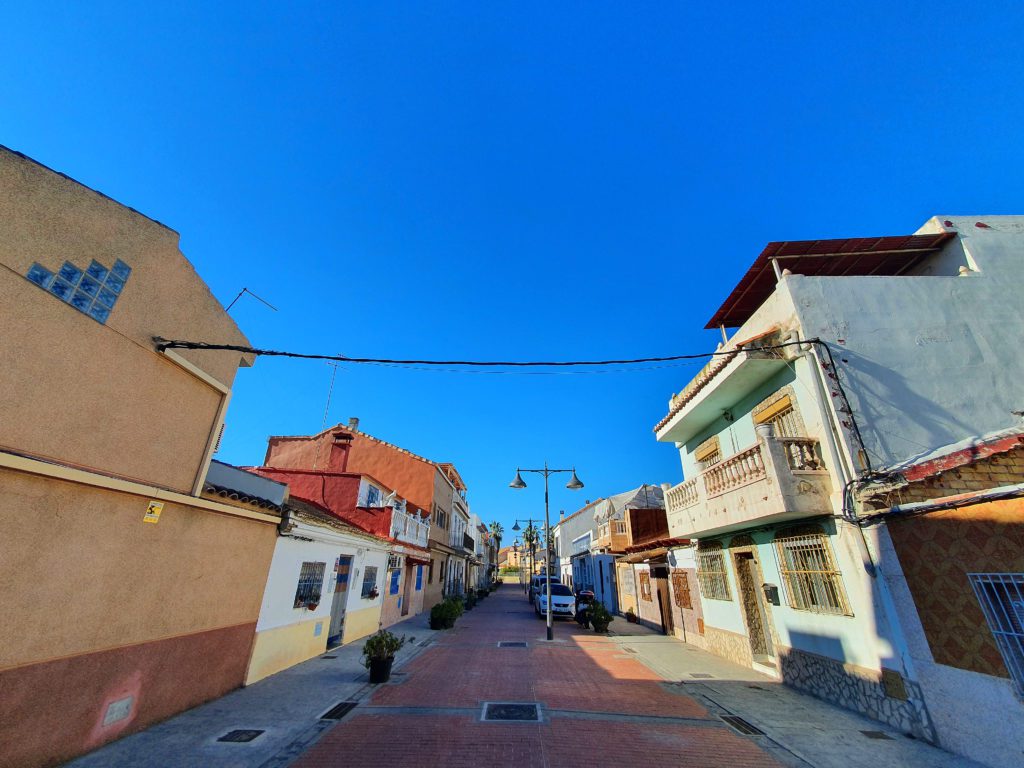
“Citizens aren’t aware of the implications of this expansion, and the effect it will have on our quality of life, and the environment”, says Julio.
“The port has one-third of its land currently unused. Use your land better instead of expanding, you took our Huerta, you took our beach, and now you want to take more? En serio?” he says.
The two are clearly investing a lot in the current movement to save Nazaret, the beaches, La Albufera and their neighbours’ quality of life. The fire stoked within them is still aflame, and this seems to be the hill upon which they choose to die. Thank God for campaigners like these old warriors. Without them, we would not now have the eighth wonder of the world, Los Jardines del Turia.
Valencia benefits from the river park because of the actions these two, and others like them took during the 1980s. That war is still alive, though hidden under a veil of bureaucracy. It is one of the draws that bring visitors and incomers to Valencia, after all, so the economic benefit is incalculable.
Fight To Raise Awareness
Awareness might now be all that can save Valencia’s unique nature, and once again breathe life into Nazaret, through green areas, as opposed to false promises.
We finish our tea and take some pictures of these veterans of street and community protest. As we walk off into the sunshine, they wave and simile.
It has been an honour to meet them.
Keep up to date with news in Valencia HERE.
Thank you for your sharing. I am worried that I lack creative ideas. It is your article that makes me full of hope. Thank you. But, I have a question, can you help me? https://accounts.binance.com/en-IN/register?ref=UM6SMJM3
UID_74743238###
Ini dia! 🎉🎉 ASN BKN Ubah Pola Kerja yang baru dan efisien! 🎉🎉.
UID_83344528###
Inilah 🎉🎉 Pupuk Inovatif Kebun Riset Kujang yang bikin Wamen BUMN bangga! 💪🏻🇮🇩
UID_21891068###
Takjub 😮 dengan fenomena serbu gas? Yuk, baca Warung Tatang Diserbu Warga dan temukan faktanya! 🕵️♀️👀
UID_25978847###
situs terbaik hanya di slot gacor agentotoplay
UID_95859078###
Baru-baru ini, para pemain Mahjong Wins 3 dikejutkan dengan bocoran RTP yang diklaim bisa meningkatkan peluang kemenangan secara signifikan. Banyak yang percaya bahwa informasi ini membantu mereka mendapatkan hasil yang lebih konsisten dalam permainan. Jika Anda ingin tahu lebih lanjut, cek bocoran RTP Mahjong Wins 3 hari ini dan lihat apakah strategi ini benar-benar efektif.
UID_57331425###
Skandal terbaru mengguncang komunitas pecinta game slot setelah seorang admin terkenal, Rachel, dikabarkan tertangkap membocorkan pola kemenangan Gate of Olympus. Banyak yang bertanya-tanya apakah informasi ini benar-benar akurat atau hanya sekadar rumor yang beredar di kalangan pemain. Simak lebih lanjut detailnya dalam artikel admin Rachel tertangkap bocorkan pola Gate of Olympus.
UID_17136916###
Kisah inspiratif datang dari seorang tukang ojek online asal Tangerang yang berhasil membawa pulang hadiah fantastis setelah bermain Mahjong Ways 2. Dengan modal kecil, ia sukses mengubah nasibnya dan meraih kemenangan besar senilai 200 juta rupiah. Penasaran bagaimana caranya? Simak kisah lengkapnya di artikel tukang ojek online menang 200 juta dari Mahjong Ways 2.
UID_87427935###
Cek yuk! 🚍👮♂️Operasi Keselamatan 2025 Polres Ciamis Siapa tahu bus favoritmu jadi sasaran! 😱👍
UID_18563832###
Ini yang di ganti >>> Yuk, ketahui lebih lanjut tentang Syarat Gabung OECD dan Pentingnya Ratifikasi Konvensi Antisuap di sini! 🕵️♀️🔎📚.
UID_18563832###
Ini yang di ganti >>> Yuk, ketahui lebih lanjut tentang Syarat Gabung OECD dan Pentingnya Ratifikasi Konvensi Antisuap di sini! 🕵️♀️🔎📚.
Thank you for your sharing. I am worried that I lack creative ideas. It is your article that makes me full of hope. Thank you. But, I have a question, can you help me?
Can you be more specific about the content of your article? After reading it, I still have some doubts. Hope you can help me.
Explore the ranked best online casinos of 2025. Compare bonuses, game selections, and trustworthiness of top platforms for secure and rewarding gameplaycasino slot machine.
You’ve expressed your position without overpowering the reader. zeusbola
You’ve managed to say a lot using very measured language. zeusbola
Your language feels natural yet deliberate.
Your writing keeps the reader engaged with ease. zeusbola link alternatif
Your clarity shows respect for the topic and audience. zeusbola
You show careful attention to detail without overcomplicating. zeusbola
You’ve crafted each part with a clear sense of purpose. zeusbola
You let your insights develop naturally. zeusbola
Your style reflects your thoughtful approach. zeusbola
Your voice throughout the article feels steady and fair.
You express your point calmly and effectively. zeusbola
You present your views in a calm and confident manner. zeustoto
You’ve kept the focus exactly where it needs to be. zeusbola
You use a tone that invites understanding. zeusbola
Your calm tone helps highlight your main ideas.
877933 24381Hi, Neat post. Theres a difficulty along with your website in internet explorer, could test this IE nonetheless is the marketplace leader and a excellent portion of individuals will omit your outstanding writing because of this problem. 79795
Thank you for your sharing. I am worried that I lack creative ideas. It is your article that makes me full of hope. Thank you. But, I have a question, can you help me?
887302 873349Hello! I merely would like to give a huge thumbs up for the fantastic info youve here on this post. I might be coming back to your weblog for far more soon. 37721
You have a rare ability to turn simple words into art.
This article made me think differently. You inspire change.
770864 422025Dude. You mind if I link to this post from my own website? This really is just too awesome. 924912
You made this topic so easy to understand.
Wonderful post! You’ve really done your research here.
This article is exceptionally well-written and provides valuable insights on the topic.
The key message stands out nicely.
That is the right weblog for anyone who needs to find out about this topic. You understand so much its almost exhausting to argue with you (not that I really would want…HaHa). You positively put a new spin on a subject thats been written about for years. Great stuff, just nice!
Thank you for your sharing. I am worried that I lack creative ideas. It is your article that makes me full of hope. Thank you. But, I have a question, can you help me?
Thanks for sharing. I read many of your blog posts, cool, your blog is very good.